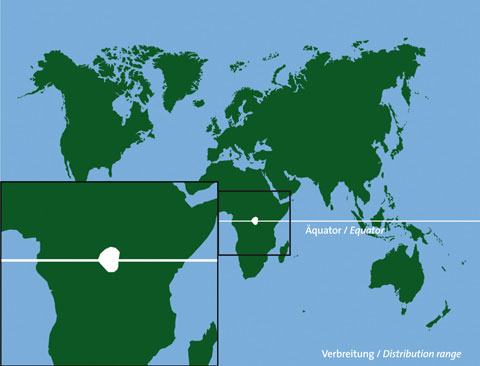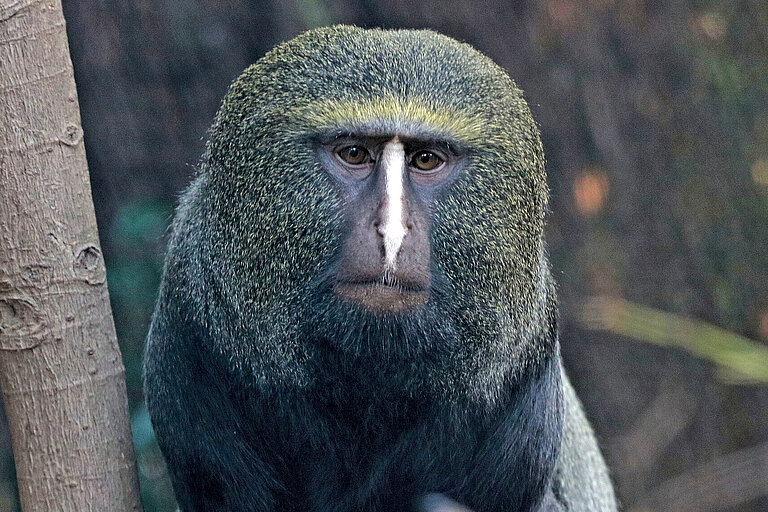Did you know?
It was thought that the owl-faced monkeys copy large owls like a mimicry. This impression was based on their white, beak-like line on their noses and on their owl-like behaviour of using their heads as pendulums in case of danger. How-ever, this theory was never confirmed. The day-active primates live in small groups and are only rarely kept in zoos.
European Endangered species Program
This animal is managed by the European Association of Zoos and Aquaria (EAZA) under the European Endangered species Program.

Characteristics
| Classification | Order primates, family guenons and relatives; are closely related to baboons and macaques like rhesus monkeys |
|---|---|
| Diet | Fruit, berries, buds, herbs, eggs and small animals |
| Habitat | Mountain forests of the upper reaches of the Congo and humid mountain forests up to a height of 4,000 metres |
| Reproduction | Gestation time: 5–6 months, 1 young (250–350 g); weaning: 6 months; sexual maturity: 3–4 years; maximum age: up to 28 years |
Status according to Red List
More information you will get on the web page of the IUCN Red List.








